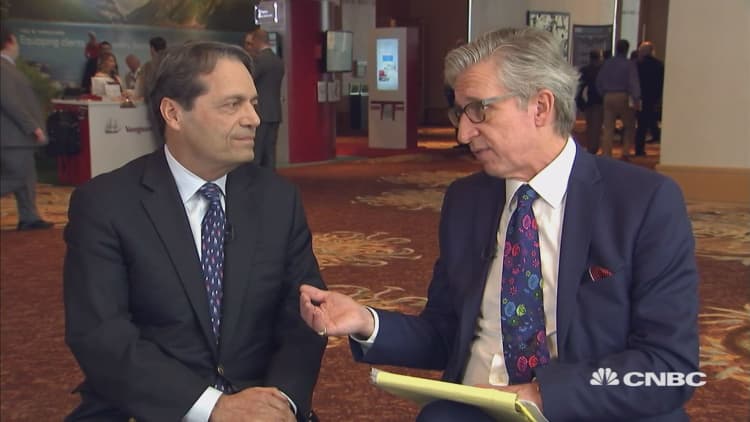The investing world is very different today than it was on Oct. 14, 2009, which was the first significant close above 10,000 for the Dow Jones Industrial Average after the financial crisis.
In those seven years, exchange-traded funds have gone from a small business with about $745 billion in assets under management and roughly 800 ETFs to today, when ETFs have roughly $2.5 trillion in assets under management with nearly 2,000 funds.
The Inside ETFs Conference in Hollywood, Florida, is entering its final day, and participants are marveling at how much — and how quickly — the industry has grown.
Behind it are two powerful trends: first, a move toward indexing rather than stock picking, or active management. Second, a desire to pay lower fees; ETFs are significantly cheaper than mutual funds.

ETFs have rapidly evolved. They are now the default way of investing for any asset class, not just equities. There are ETFs that cover equities, bonds and commodities, and in every possible space, from international fixed income to emerging-market high yield. There's even a form of active management calledsmart beta that picks stocks based not on market capitalization but on other factors, like momentum, earnings growth or dividend payments.
Where will it end? With not quite $3 trillion in assets under management, ETFs still have a way to go before it will pass the $16 trillion mutual fund industry, but it's clearly moving in that direction.
2025: When ETF triumph will be complete
The gap is closing fast. Dave Nadig, CEO of ETF.com, predicted four years ago that ETFs would surpass the assets of mutual funds by 2025. He repeated that claim at this conference.
There are several reasons to believe the ETF business will keep advancing.
First, the growth of robo-advisors, which will build a portfolio of mostly ETFs based on a series of investment parameters determined mostly by filling out questionnaires. Second, demographics. The millennial generation is flocking to low-cost ETFs. Finally, government regulations. The government is pushing advisors toward a lower-cost fee structure, directly and indirectly.


